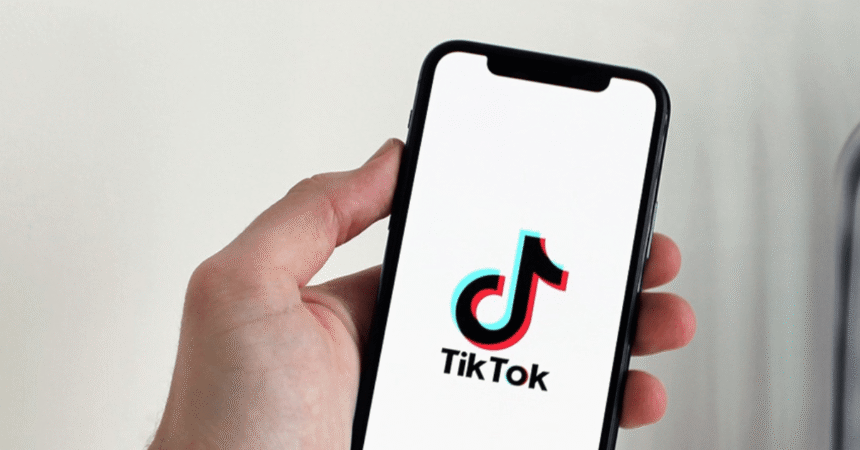The ongoing legal battle between TikTok, its Chinese parent company ByteDance, and the U.S. government has reached a critical juncture as the app’s challenge to a new law banning its operation in the United States faces intense scrutiny. A federal appeals court in Washington, D.C., is currently deliberating over TikTok’s lawsuit, which seeks to prevent the enforcement of a law set to take effect on January 19, 2025. The outcome of this case could have profound implications for national security, free speech, and international relations.
The Controversial Law and Its Implications
The law in question, passed by Congress and signed into effect by President Joe Biden in April, mandates that ByteDance must divest its U.S. assets related to TikTok or face a nationwide ban. This legislation emerged from heightened concerns that the Chinese government could exploit TikTok’s access to vast amounts of personal data on American users. The U.S. Congress’s overwhelming support for the measure reflects the growing anxiety over potential data breaches and espionage.
If upheld, the law would require ByteDance to sell TikTok’s U.S. operations or face a ban, impacting millions of American users who rely on the app for social media, content creation, and communication. The law is part of a broader trend of increasing regulatory scrutiny on foreign-owned tech platforms, reflecting global concerns about data sovereignty and digital security.
TikTok’s Legal Arguments
TikTok and ByteDance, having filed their lawsuit in May, argue that the law infringes on their First Amendment rights and sets a dangerous precedent. Their legal team, led by attorney Andrew Pincus, contends that the U.S. government has not provided sufficient evidence to demonstrate that TikTok poses a genuine national security risk. Pincus asserts that the law’s provisions are unprecedented and that Congress is overstepping its bounds by targeting a specific platform for a ban.
Pincus emphasized that this case represents an unprecedented instance of Congress targeting a specific U.S. speaker and the speech of 170 million Americans. He argued that such a move would set a troubling precedent for future legislative actions against digital platforms, potentially stifling free expression and innovation. According to Pincus, the law’s impact would be staggering, marking a historic departure from established principles of free speech and due process.
Government’s Stance on National Security
On the other side, Justice Department lawyer Daniel Tenny defended the law, highlighting the potential risks posed by Chinese ownership of TikTok. Tenny argued that the app’s access to vast amounts of personal data could be exploited by the Chinese government for covert manipulation. He warned that the complexity and scale of TikTok’s code make it nearly impossible to detect any malicious alterations or misuse.
Tenny’s argument centers on the assertion that the Chinese government could potentially use TikTok to manipulate the information consumed by American users, posing a significant threat to national security. He emphasized the challenges of monitoring such a large and frequently updated codebase, arguing that the potential risks justify the law’s restrictions on TikTok’s operations.
Judicial Scrutiny and Key Questions
During the hearing, the three-judge panel—Judges Sri Srinivasan, Neomi Rao, and Douglas Ginsburg—posed tough questions to both parties. Judge Rao questioned how the government plans to handle the vast and continuously updated source code of TikTok. She expressed concerns about the feasibility of achieving verified disclosure, given the code’s complexity and frequent changes.
Judge Ginsburg drew parallels to other U.S. laws that restrict foreign ownership of broadcast licenses, asking why this case should be treated differently. He explored the legal precedents for restricting foreign ownership and how they might apply to TikTok’s situation.
Judge Srinivasan raised a hypothetical scenario involving a U.S. wartime situation with China and queried whether Congress could bar foreign ownership of major media outlets. Pincus acknowledged that Congress might have such authority in wartime but emphasized that this justification was not included in the current law.
The judges’ questions reflect a deep concern about the balance between national security and constitutional rights. Their scrutiny highlights the complexities involved in assessing the law’s implications for both TikTok and broader free speech protections.
The Law’s Requirements and Potential Impact
The law stipulates that ByteDance must divest TikTok’s U.S. assets by January 19, 2025, or face a ban. This requirement extends to app stores like Apple and Google, which would be prohibited from offering TikTok if the divestment is not completed. Additionally, internet hosting services would be barred from supporting TikTok unless ByteDance complies with the divestment deadline.
The law also grants President Biden the authority to extend the divestment deadline by three months if ByteDance demonstrates significant progress toward a sale. This provision reflects an attempt to balance national security concerns with the practicalities of divesting a major tech asset.
Political and Public Reactions
The case unfolds against the backdrop of a highly polarized political landscape in the U.S. The White House has expressed a preference for ending Chinese-based ownership of TikTok rather than imposing a full ban. This position aligns with broader concerns about data security and foreign influence while avoiding the more extreme measure of a complete ban.
Former President Donald Trump, who had previously attempted to ban TikTok in 2020, has indicated that he would not support a ban if elected in November. This stance contrasts with current legislative efforts and reflects the ongoing debate over how best to address national security concerns related to foreign tech ownership.
The public reaction to the case is mixed, with many Americans expressing concerns about the potential loss of a popular platform used for social media, content creation, and political engagement. The outcome of the case could impact millions of users who rely on TikTok for communication and self-expression.
Broader Implications and Future Developments
The TikTok case represents a significant legal and political battle with far-reaching implications for digital platforms and their regulation. The outcome will influence how governments address concerns about foreign ownership and data security, potentially setting a precedent for future cases involving tech platforms.
As the legal proceedings continue, the focus will remain on how the courts balance national security interests with constitutional rights and the practicalities of enforcing such a sweeping law. The case underscores the complexities of regulating global tech platforms in an increasingly interconnected world and the challenges of navigating legal, political, and technological dimensions.
The final ruling in this case will likely shape the future of digital regulation and set important precedents for how governments approach issues of data security, foreign influence, and free speech in the digital age.
#TikTok #ByteDance #USTechLaw #NationalSecurity #FreeSpeech #FederalAppeals #DigitalPrivacy #TechRegulation #FirstAmendment #DataSecurity #USPolitics







